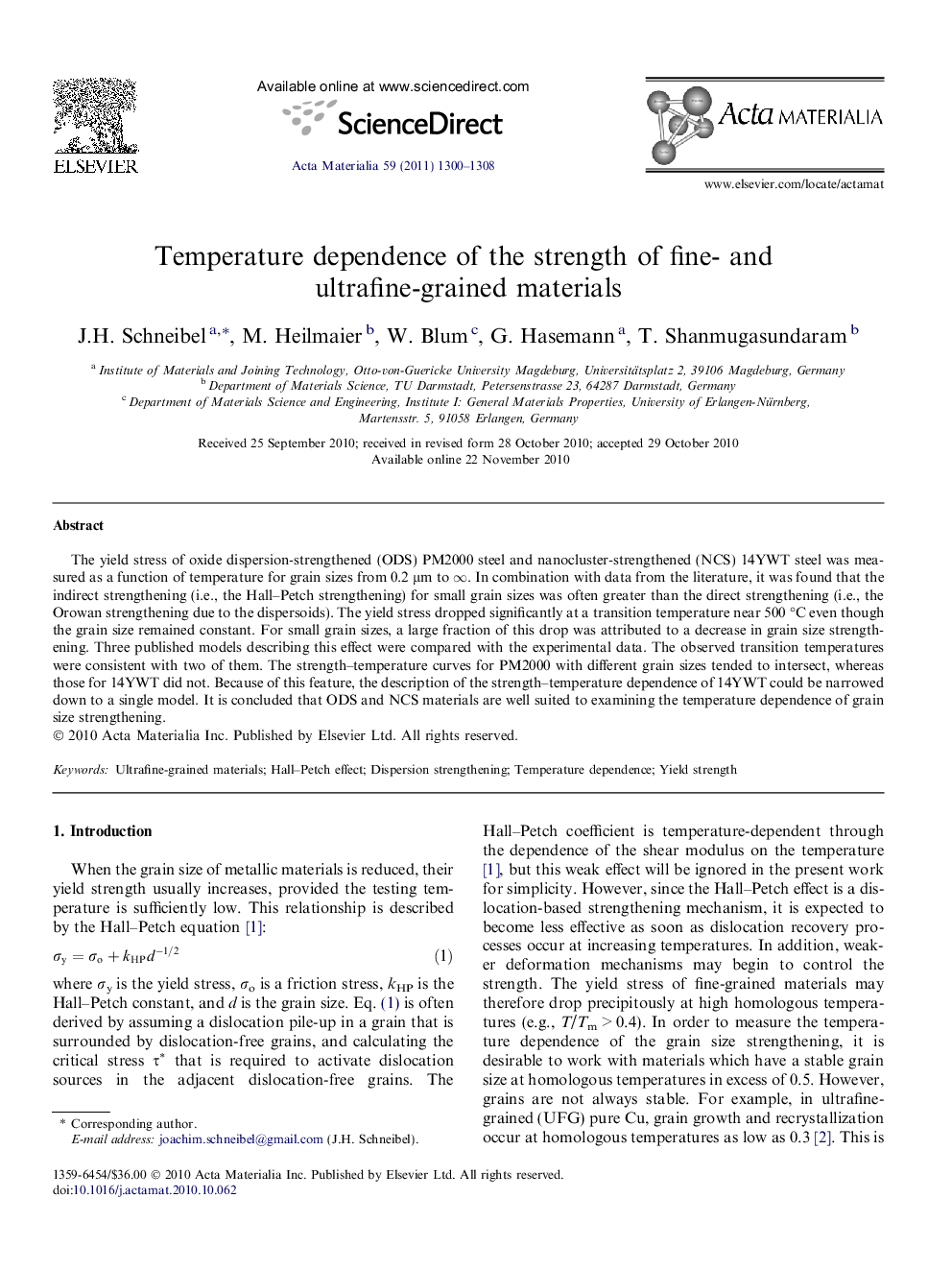| Article ID | Journal | Published Year | Pages | File Type |
|---|---|---|---|---|
| 1447695 | Acta Materialia | 2011 | 9 Pages |
The yield stress of oxide dispersion-strengthened (ODS) PM2000 steel and nanocluster-strengthened (NCS) 14YWT steel was measured as a function of temperature for grain sizes from 0.2 μm to ∞. In combination with data from the literature, it was found that the indirect strengthening (i.e., the Hall–Petch strengthening) for small grain sizes was often greater than the direct strengthening (i.e., the Orowan strengthening due to the dispersoids). The yield stress dropped significantly at a transition temperature near 500 °C even though the grain size remained constant. For small grain sizes, a large fraction of this drop was attributed to a decrease in grain size strengthening. Three published models describing this effect were compared with the experimental data. The observed transition temperatures were consistent with two of them. The strength–temperature curves for PM2000 with different grain sizes tended to intersect, whereas those for 14YWT did not. Because of this feature, the description of the strength–temperature dependence of 14YWT could be narrowed down to a single model. It is concluded that ODS and NCS materials are well suited to examining the temperature dependence of grain size strengthening.
